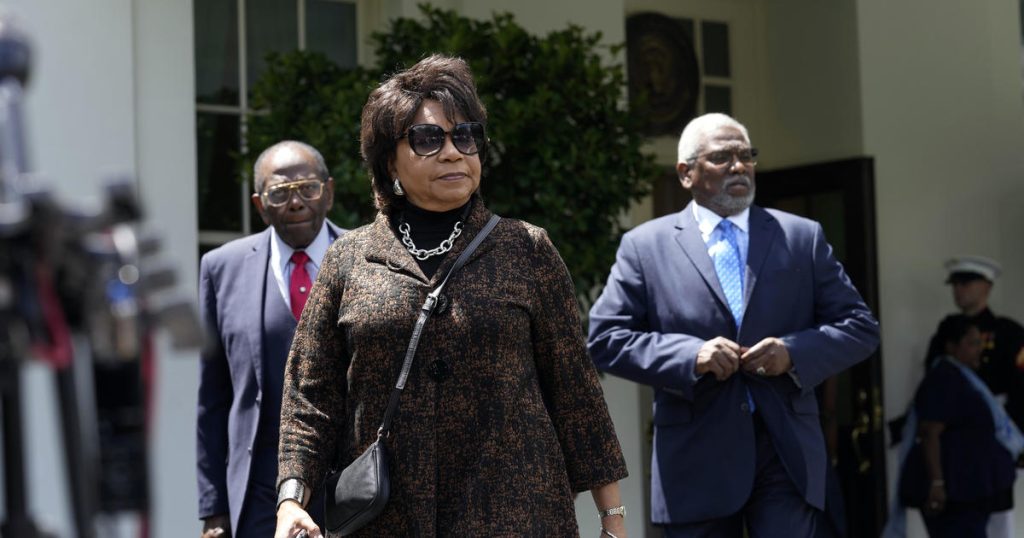President Biden marked the 70th anniversary of the Brown v. Board of Education decision by welcoming plaintiffs and families to the White House, highlighting his administration’s commitment to racial equity. He engaged with Black voters this week with radio interviews, and is scheduled to deliver remarks at the National Museum of African American History and Culture, meet with historically Black sororities and fraternities, speak at Morehouse College, and address an NAACP gala. During the meeting with litigants and families, the focus was on honoring the plaintiffs and improving education in Black communities. White House senior adviser Stephen Benjamin noted that Biden commended the plaintiffs for changing the nation and pledged to continue efforts to move closer to the promise of America.
In an effort to secure Black voter support for his reelection campaign, Biden has faced criticism and disappointment among some Black adults for his performance as president. NAACP President Derrick Johnson, who participated in the Oval Office meeting, emphasized that the election is about upholding a functioning democracy. Litigants and family members of the five cases consolidated into the Brown decision were present at the meeting, including John Stokes, Cheryl Brown Henderson, and Adrienne Jennings Bennett. The Brown decision overturned the 1896 ruling that allowed racially segregated schools under the doctrine of “separate but equal,” affirming that such accommodations were not equal.
During the meeting, participants called for May 17, the day of the Brown decision, to be recognized as an annual federal holiday. Biden acknowledged the courage of the litigants who challenged segregation during the Jim Crow era, acknowledging the risks they took to fight for equality. The announcement that Biden would deliver the Morehouse graduation address sparked protests over his handling of the Israel-Hamas conflict, leading to discussions with Morehouse students and faculty. The situation in the Middle East was among the topics discussed during these interactions, showcasing Biden’s engagement with diverse viewpoints and addressing challenging issues.
The president’s engagements with Black voters, historical Black organizations, and educational institutions underscore his efforts to rally support and push for racial equity. As he faces a challenging reelection battle, Biden seeks to build on his relationship with Black communities and emphasize his commitment to advancing civil rights and social justice. The recognition and commemoration of the Brown decision serves as a reminder of the ongoing struggle for equality and the importance of addressing systemic racism in education and beyond. Through these interactions and events, Biden aims to strengthen his connection with Black voters and demonstrate his dedication to advancing racial justice and equity for all Americans.
Despite some criticisms and disappointment among certain segments of the Black community, Biden’s efforts to engage with Black voters and honor the legacy of civil rights pioneers demonstrate his commitment to advancing racial equity and inclusion. The recognition of the Brown decision and the meeting with litigants and families highlight the ongoing fight for equality and the importance of commemorating pivotal moments in civil rights history. By participating in events and discussions with historically Black organizations and educational institutions, Biden continues to emphasize his dedication to addressing systemic inequalities and promoting diversity, equity, and inclusion in all aspects of society. Through these actions, Biden seeks to mobilize support, inspire change, and uphold the values of justice and equality for all Americans.


